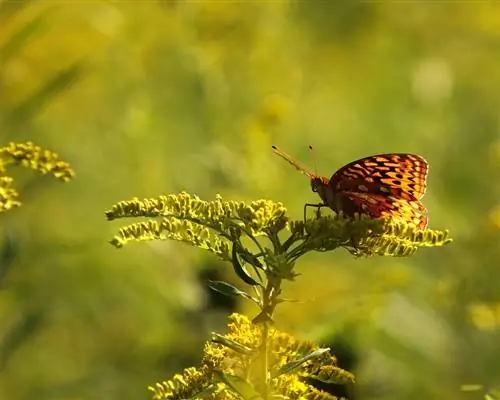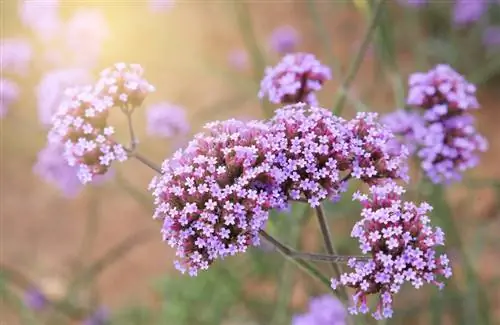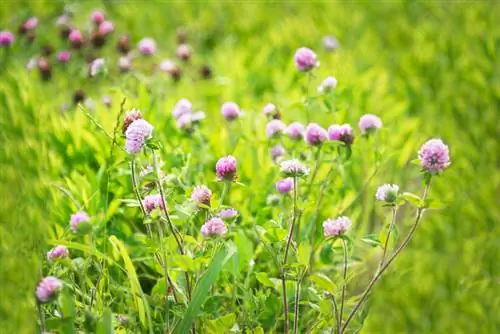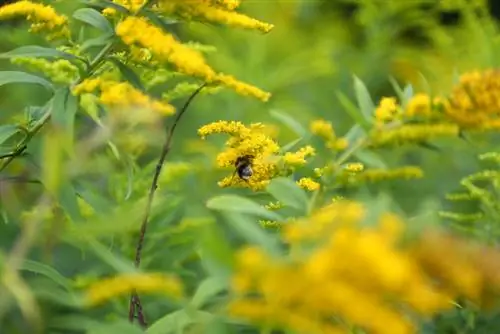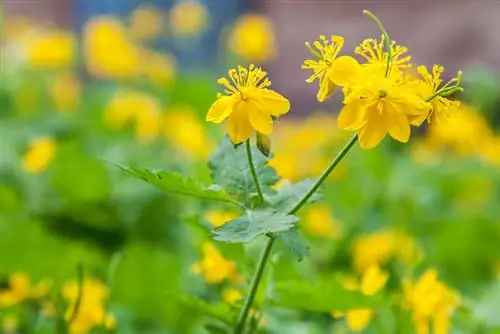- Author admin leonars@hobbygardeners.com.
- Public 2023-12-16 16:46.
- Last modified 2025-01-23 11:20.
We mainly have three different types of goldenrod or golden rue (Solidago), although they are quite similar in terms of their use. Regardless of whether it is the Canadian goldenrod (Solidago canadensis), the giant goldenrod (Solidago serotina) or the common goldenrod (Solidago virgaurea), all species are non-toxic to humans and animals. The plants also have a long tradition as medicinal plants.
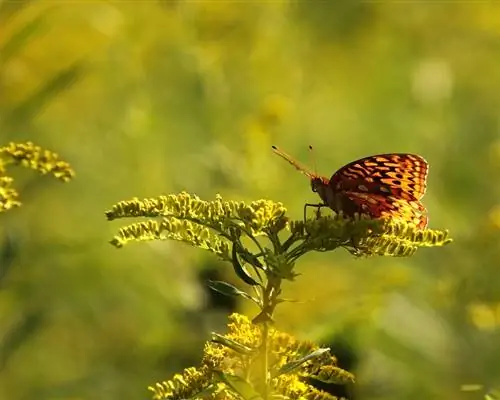
Is goldenrod poisonous?
Goldenrod (Solidago) is non-toxic to humans and animals, but can cause allergies in sensitive people. It is traditionally used as a medicinal plant to treat wounds, kidney and bladder diseases, rheumatism and skin diseases.
Allergy sufferers beware
Basically, goldenrod is non-toxic for humans and animals - with the exception of horses and cattle, which is why the plants must never be found in a pasture - but can trigger allergies in sensitive people. Contact eczema, which can occur through contact with plant sap, is common. Gloves that are worn when cutting and handling the goldenrod help against this. Plant pollen is also considered a trigger for hay fever.
Goldenrod as a medicinal plant
Traditionally, goldenrod is used to treat wounds, but also for various kidney and bladder diseases, rheumatism, gout as well as intestinal and skin diseases. The Germanic peoples already collected, dried and used the flowering shoot tips for medicinal purposes. The best time to collect is the months of July and August; the yield should be dried hanging in a warm, dark and airy place.
Ingredients of Goldenrod
All three types of goldenrod have similar ingredients. In addition to essential oil and saponins, they contain phenol glycosides, flavonoids, diterpenes, chlorogenic acid, rutoside, querecitin and polysaccharides. When collecting, you should avoid confusion with the very similar but poisonous Fuchs's ragwort.
Tip
People with bee allergies should also carefully consider planting goldenrod. The richly flowering perennial is a frequent feeding pasture for bees, butterflies and other insects. At least the plants should not be planted in heavily used/trespassed locations.

